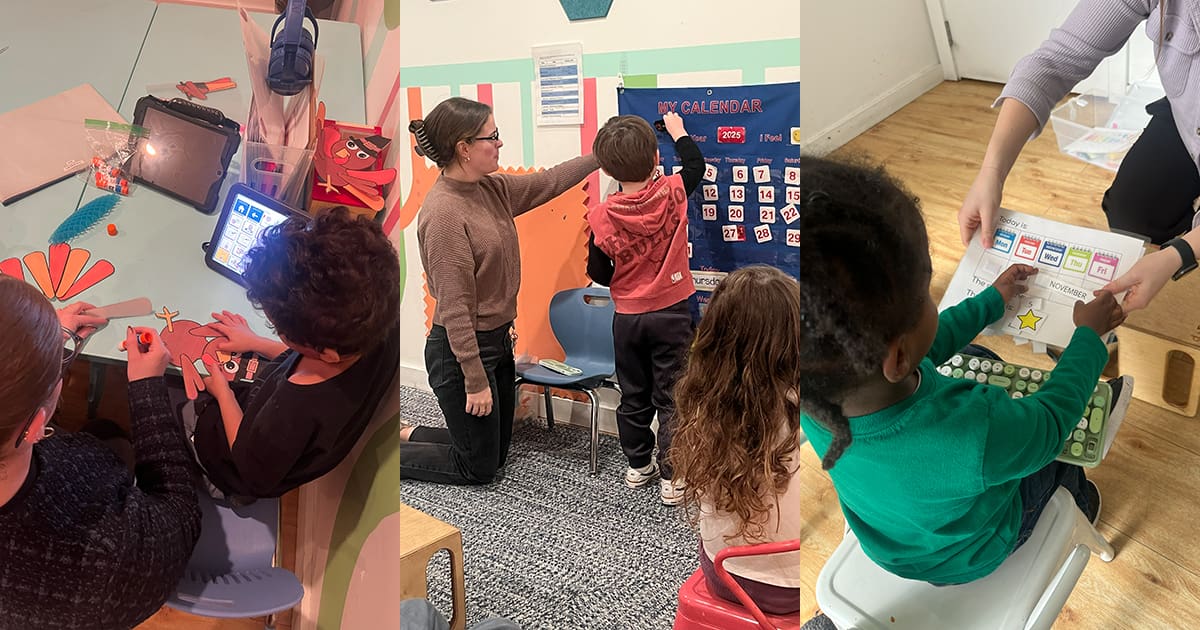Share this Post

When a child begins therapy—whether for speech, occupational, behavioral, or developmental support—progress is often maximized when the entire family plays an active role in the process. Family involvement is more than just attending therapy sessions or following recommendations; it is about creating a consistent, supportive environment where skills learned in therapy are reinforced in daily life.
At CST Academy, we emphasize collaborative, family-centered care because we know that children thrive when they receive encouragement, structure, and reinforcement from the people who know them best—their family. This guide explores the many ways that parental and family engagement can positively impact a child’s therapy experience, leading to stronger, more meaningful outcomes.
Why Family Involvement is Essential in Therapy
Therapy sessions alone, while beneficial, are only part of the equation. A child may spend just a few hours a week working with their therapist, but they spend countless hours interacting with parents, siblings, and caregivers. The more families integrate therapy strategies into daily routines, the more a child benefits.
Key benefits of active family involvement include:
- Faster skill development – Children who practice therapy techniques outside of sessions often show quicker progress.
- Increased confidence – Children feel more secure when family members provide encouragement and reinforcement.
- Stronger communication – Families learn how to support, listen, and engage with their child in a way that aligns with therapy goals.
- Better generalization of skills – Therapy strategies become part of everyday routines, making them more natural and automatic for the child.
- Stronger emotional connections – Parents and caregivers gain a deeper understanding of their child’s challenges and how to support them effectively.
By working together, families and therapists build a strong foundation that allows a child to achieve long-term success.
How Families Can Positively Impact Their Child’s Therapy Program
Every family dynamic is different, and involvement can take many forms. Here are five impactful ways parents and caregivers can support a child’s therapy journey.
1. Reinforcing Therapy Strategies at Home
Children need frequent practice to master new skills, and home is the perfect place to reinforce what they learn in therapy. Parents and caregivers can:
- Encourage speech practice by modeling correct pronunciation and engaging in conversations.
- Support motor skill development by incorporating fine and gross motor activities into playtime.
- Use behavioral strategies learned in therapy to improve communication and self-regulation.
- Offer sensory-friendly experiences to help with sensory processing challenges.
Even small, everyday moments—like turning meal prep into a fine motor task or using bedtime stories to enhance language development—help children apply their therapy skills outside of structured sessions.
2. Attending Therapy Sessions When Possible
When parents and caregivers attend therapy sessions, they gain first-hand knowledge of the strategies being used. Observing sessions allows families to:
- Learn specific techniques to use at home.
- Ask questions and gain clarity on therapy goals.
- Build trust and communication with the therapist.
- See progress in real time and celebrate achievements together.
Even if attending every session is not possible, scheduling regular check-ins with the therapist can ensure that parents stay informed and engaged.
3. Communicating Openly with Therapists
A strong parent-therapist partnership is key to success. Open communication allows therapists to better understand the child’s behavior at home and in different environments. Parents should:
- Share observations about progress or challenges outside of therapy.
- Ask for guidance on specific situations or struggles.
- Provide feedback on what strategies are working well at home.
- Work with the therapist to adjust goals as needed.
The more information families and therapists exchange, the better the therapy plan can be tailored to meet the child’s individual needs.
4. Creating a Consistent Routine
Children thrive on structure and predictability, especially those receiving therapy for developmental delays, speech disorders, or sensory challenges. Parents can help by:
- Setting a consistent schedule for therapy sessions and at-home practice.
- Using visual schedules or checklists to prepare the child for daily activities.
- Offering predictable transitions between tasks to reduce frustration.
- Providing consistent expectations across different settings.
When therapy strategies become part of a child’s daily routine, they are more likely to carry over into natural interactions.
5. Encouraging a Positive, Supportive Environment
Therapy progress can sometimes feel slow, and children may become frustrated when working on new skills. Parents play a crucial role in boosting confidence and motivation by:
- Celebrating small victories, no matter how minor they may seem.
- Providing encouragement instead of pressure or correction.
- Using positive reinforcement, such as verbal praise or reward systems.
- Allowing their child to take breaks and reducing stress when therapy feels overwhelming.
Children are more likely to stay engaged in therapy when they feel supported, encouraged, and safe.
The Role of Siblings and Extended Family
While parents and caregivers are the primary supporters in a child’s therapy journey, siblings, grandparents, and extended family members can also play a meaningful role.
- Siblings can help model appropriate behaviors, social skills, and play interactions.
- Grandparents and other caregivers can learn therapy techniques to maintain consistency across environments.
- Friends and family members can provide emotional encouragement and celebrate progress.
By creating a family-centered approach, children feel surrounded by people who understand their challenges and are committed to helping them succeed.
When to Seek Additional Support
Family involvement is important, but it is also essential to recognize when extra support is needed. If a child is struggling with progress or facing new challenges, it may be helpful to:
- Schedule a progress check-in with their therapist to discuss adjustments to their treatment plan.
- Join parent education sessions to learn more about therapy techniques.
- Seek guidance from a family support group to connect with other parents facing similar experiences.
At CST Academy, we provide ongoing resources and support to ensure that families feel confident in their role throughout their child’s therapy journey.
Helping Your Child Thrive with Family Support
Therapy is not just about the time spent in sessions—it is about building lifelong skills that will help a child communicate, learn, and grow with confidence. When families take an active and supportive role, children are more likely to make meaningful progress and carry their skills into daily life.
At CST Academy, we are dedicated to partnering with families to ensure that every child receives the best possible care. Our team works closely with parents to provide guidance, education, and individualized therapy plans that support long-term success.
If you are looking for a therapy program that prioritizes family involvement and comprehensive support, contact CST Academy today. We are here to help your child reach their full potential in a warm, nurturing environment.
Discover Our Pediatric Therapy & Autism Care
ABA Therapy
Support for children with autism.
Autism Evaluation
Expert assessments to identify child needs.
Pediatric Therapy Services
Speech, Occupational, Feeding, and Physical Therapy.
Therapeutic Preschool
A classroom environment designed for early learners with unique needs.

Find the Best Care for Your Child




